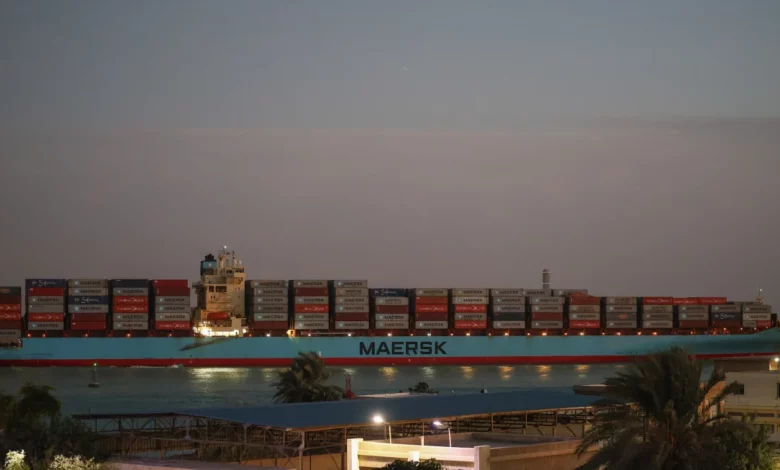
Hapag-Lloyd and Evergreen Line, the container shipping arm of Evergreen Group, told CNN Wednesday that they would continue to reroute vessels via the Cape of Good Hope at Africa’s southern tip. MSC said the same Tuesday.
“At the moment we still consider the situation too dangerous to pass,” a spokesperson for Germany’s Hapag-Lloyd said in a statement. “We continuously assess the situation and plan a next review on Friday.”
In an update posted to its website at 5 a.m ET on Friday, Hapag-Lloyd said it continued to divert its ships to avoid the Red Sea and Suez Canal.
Evergreen Line referred CNN to a December 18 statement in which the company said it had instructed its container ships to suspend navigation through the Red Sea “until further notice.”
The two firms’ approach differs from that of other shippers, which have resumed transit in the critical waterway despite ongoing attacks on commercial vessels by Huthi militants. The Iran-backed rebels have said the assaults are revenge against Israel for its military campaign against Hamas in Gaza.
Danish shipper Maersk said Sunday that it would resume transit through the Red Sea and the Gulf of Aden to its southeast following the establishment of a US-led international naval mission to protect commercial shipping in the area.
Operation Prosperity Guardian will once again allow shipping vessels to pass through the area, Maersk said in a statement, in what it called “most welcome news for the entire industry and indeed the functionality of global trade.”
French firm CMA CGM said Tuesday that some of its vessels had transited through the Red Sea in recent days “based on an in-depth evaluation of the security landscape.”
“We are currently devising plans for the gradual increase in the number of vessels transiting through the Suez Canal,” the company added, referring to the narrow waterway connecting the Red Sea to the Mediterranean and typically ferrying as much as 30 percent of global container trade.
But persistent insecurity in the area was on display Tuesday, when a vessel belonging to container shipping giant MSC was attacked while en route from Saudi Arabia to Pakistan.
“Our first priority remains protecting the lives and safety of our seafarers, and until their safety can be ensured MSC will continue to reroute vessels booked for Suez transit via the Cape of Good Hope,” the company said in a statement.
Shipping costs to rise
Shipping costs look set to rise regardless of whether companies use the Red Sea or send ships on the longer, more expensive route via Africa.
Maersk, CMA CGM and Hapag-Lloyd have all announced new charges in recent days to transport goods along many of the world’s busiest trade routes.
“The dynamic situation in the Red Sea and the necessary operational adjustments are causing disruptions throughout the network which will impact schedules and equipment supply,” Hapag-Lloyd said in a statement last week as it unveiled an “Emergency Revenue Charge” for cargo traveling to and from the Red Sea until the end of the month.
The new measure will add $1,000 to a common 20-foot container traveling eastbound via the Suez Canal, and $1,500 for one heading west via the Gulf of Aden.
Maersk and CMA CGM have taken similar steps. And with some charges coming into effect only from January, concerns will rise that the shipping disruption could spill over into the price of consumer goods — if companies pass on higher transport costs to customers as demand picks up again.
Israel’s war in Gaza also underpinned natural gas prices Wednesday. Renewed fears that the war could widen into a regional conflict helped send Europe’s benchmark natural gas contract almost 5% higher to trade close to €36 ($40) per megawatt hour by 9 a.m. ET.
Record levels of stored gas in Europe and mild temperatures are keeping a lid on prices, “despite heading into 2024 with several bullish risks, such as geopolitical tensions (including the Red Sea transit risk),” consultancy Timera Energy said in a note last week.




